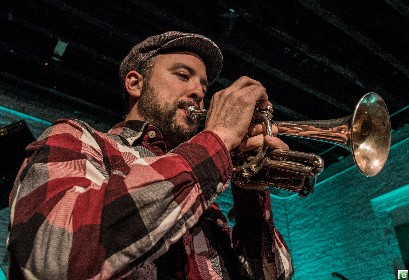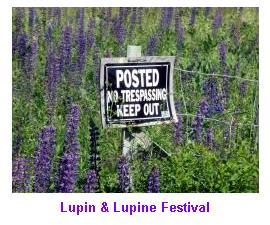Taylor Ho Bynum Appointed
Taylor Ho Bynum appointed new director of Dartmouth's jazz band.
HANOVER, NH - Cornetist, composer, band leader, writer and educator Taylor Ho Bynum-"one of the most exciting figures in jazz's new power generation" (Time Out Chicago)-will be the next director of the Barbary Coast Jazz Ensemble, Dartmouth's student jazz group.
Bynum succeeds Don Glasgo, who retired this spring after directing the Coast for 40 years. The Barbary Coast is one of nine ensembles overseen by Dartmouth's Hopkins Center for the Arts.
"The search committee did a superb job," said Mary Lou Aleskie, Howard L. Gilman Director of the Hopkins Center. "We're so excited to be bringing on board someone who is not only a pioneering jazz improviser, band director and composer but also so grounded in so many facets of the arts. We know Taylor will maintain the forward-looking commitment to jazz that Don has overseen for four decades."
said Mary Lou Aleskie, Howard L. Gilman Director of the Hopkins Center. "We're so excited to be bringing on board someone who is not only a pioneering jazz improviser, band director and composer but also so grounded in so many facets of the arts. We know Taylor will maintain the forward-looking commitment to jazz that Don has overseen for four decades."
"I could not be more excited that Taylor will be coming to Dartmouth to lead the Coast into its next chapter," said Joshua Kol, the Hop's director of student performances and acting director of operations, and the chair of the search committee. "Don Glasgo's legacy is in the incredible foundation he has laid over 40 years of working with Dartmouth students, upon which Taylor can build with generations to come. Taylor's virtuosic skill as a player, along with his dedication to teaching and mentoring students and to advancing the state of creative music, are all the exceptional qualities we searched for in a new leader."
Kol noted that Bynum is also a gifted writer, thinker and producer, interests he has combined with performance and composing from early on. Born in 1975, Bynum is most identified with "creative music"-a realm in which jazz, improvisation and new music meet, outside of the conventions of both jazz and conservatory music. As heard on more than 20 recordings as a bandleader, Bynum's expressionistic playing on cornet and his expansive vision as composer have garnered him critical attention as one of the singular musical voices of his generation.
Bynum currently leads his Sextet and 7-tette; and works with many collective ensembles including a duo with drummer Tomas Fujiwara, the improvisation trio Book of Three, the UK/US collaborative Convergence Quartet and the dance/music interdisciplinary ensemble Masters of Ceremony; and leads his own 15-piece creative orchestra called the PlusTet.
"I am incredibly excited to work with the talented students of Dartmouth College and the inspiring individuals of the Hopkins Center and Dartmouth artistic community," Bynum wrote. "I truly believe that a large group of people improvising together, navigating forms and making choices in real time, can be a transformative thing. The jazz big band has been a model of creative interaction, structural innovation, and American ingenuity for over a century, we have a lot of history to draw on, a lot of new places to go, and a lot of joy to find in this music. I am thrilled to get to explore new and old ideas in this musical tradition with the Barbary Coast!"
Bynum's varied endeavors include his Acoustic Bicycle Tours (where he travels to concerts solely by bike across thousands of miles; a 2010 tour took him around New England and a 2014 tour spanned from British Columbia to the Mexican border) and his stewardship of Anthony Braxton's Tri-Centric Foundation (which he serves as executive director, producing most of Braxton's recent major projects). Bynum met Braxton while an undergraduate at Wesleyan University, where Braxton taught and from which Bynum earned bachelor's and master's degrees.
In addition to his own bands, his ongoing collaboration with Braxton, past work with other legendary figures such as Bill Dixon and Cecil Taylor and current collective projects with forward thinking peers, Bynum increasingly travels the globe to conduct community-based large ensembles in explorations of new creative orchestra music.
Bynum is also a published author and contributor to The New Yorker's Culture Blog; has taught at universities, festivals, and workshops worldwide; and has served as a panelist and consultant for leading funders and organizations. His passion for teaching extends to all ages, having worked with university students, high schoolers, and even young children (for whom he has led improvisation workshops demonstrating how sound can be used as a Lego set to create structures for play). His work has received support from Creative Capital, the Connecticut Office of the Arts, Chamber Music America, New Music USA, USArtists International, and the Doris Duke Charitable Foundation.
Bynum's immersion in music began in his childhood home in Brookline, Mass., where his opera-loving mother boarded aspiring opera singers-including the late Lorraine Hunt Lieberson, who became a special friend of the family.
He began playing piano at about age seven and switched to trumpet at age 10. As a teen, he showed a flair for creating a musical scene, hosting a jazz series at age 16 in the Boston ice cream shop in which he worked. "I literally paid the musicians in ice cream," he told Wesleyan magazine. Before and during breaks in his studies at Wesleyan, he spent formative years as a working musician in Boston, where taught music and played a wide range of music-from rock to salsa to cover bands-but found his home in the edgier, more experimental end of jazz and took up the cornet.
|















 1
1 2
2 3
3 4
4 5
5





